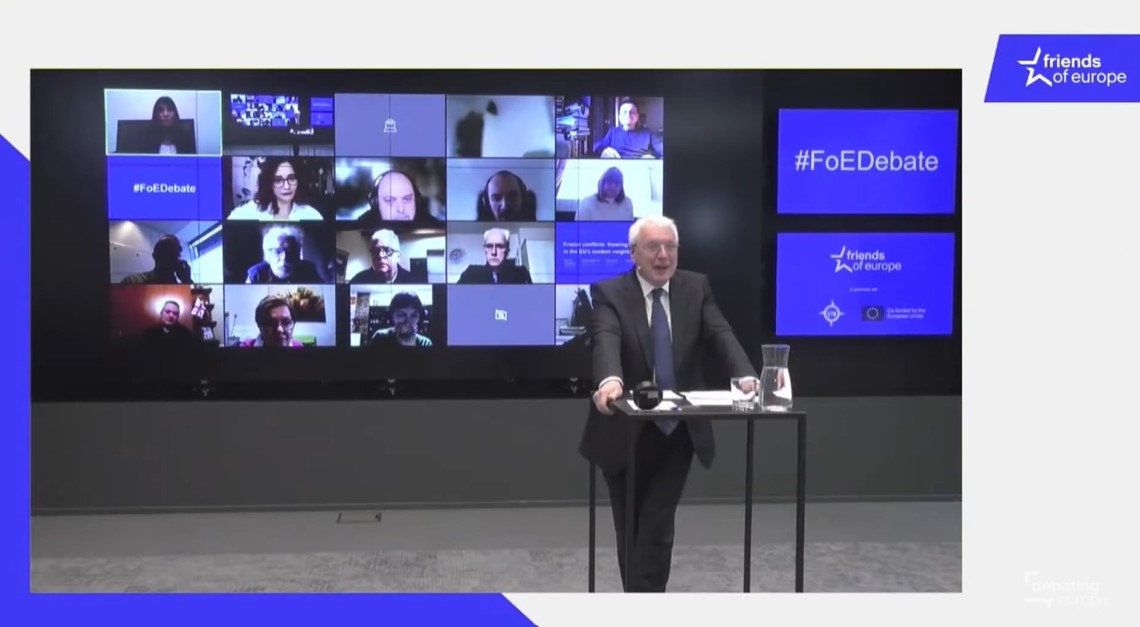Events
Could ‘frozen conflicts’ in Eastern Europe start unthawing?
Material
Download
Could the war in Ukraine spread to other countries? So-called frozen conflicts are particularly prevalent in parts of the former Soviet Union where modern-day Russia still has (or wishes to have) significant influence. As well as Transnistria and Nagorno-Karabakh, many experts considered Crimea, as well as Donetsk and Luhansk in South-Eastern Ukraine, to be such frozen conflicts. Is there a risk they could unthaw as the war in Ukraine destabilises the regional geopolitical order?
Want to learn more about Eastern Europe’s frozen conflicts? Check out our infographic below:

We recently organised a Citizens’ Panel bringing together citizens and civil society members to discuss Eastern Europe’s frozen conflicts. Below are some of the questions that come out of that panel.
Jules asked:
? I’m thinking of the EU monitoring mission in Georgia. To what extent will it remain in duty if Russian troops go beyond Abkhazia and South Ossetia? What is the ability of this entity to operate if the conflict escalates further?
Mariami asked:
? I wanted to know to what extent do we consider Abkhazia and South Ossetia a ‘frozen conflict’ when we witness creeping borders, abductions, disappearances, and so on? How is this still considered a frozen conflict when there are violations of fundamental human rights taking place every day?
To get a response, we put these questions to two participants during a Friends of Europe online event on frozen conflicts:
- Hamida Giyasbayli, Conflict specialist and journalist
- Esmira Jafarova, Board Member of the AIR Center
You can watch their responses in the video above.
Could ‘frozen conflicts’ in Eastern Europe start unthawing? Could the war in Ukraine spread to other countries? Let us know your thoughts and comments in the form below and we’ll take them to policymakers and experts for their reactions!![]()
Co-funded by the European Union. Views and opinions expressed are however those of the author(s) only and do not necessarily reflect those of the European Union or the European Commission. Neither the European Union nor the granting authority can be held responsible for them.
PHOTO CREDIT: European Union Monitoring Mission in Georgia Facebook pag
